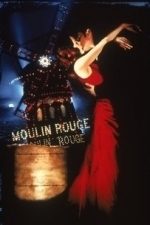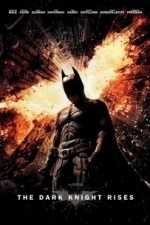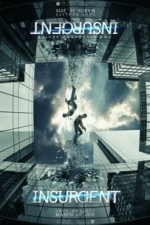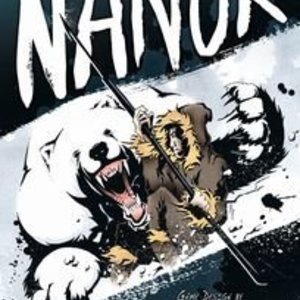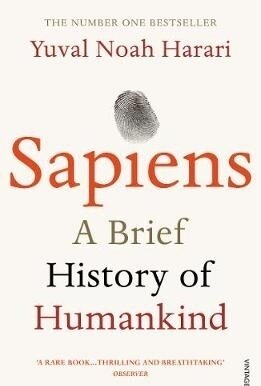Search
Search results

Audio guide Rome Crazy4Art
Travel and Entertainment
App
Audio guide awarded by Facebook! Our app has been selected for the start-up program FB "Bootstrap...
BankofMarquis (1832 KP) rated Moulin Rouge! (2001) in Movies
Apr 15, 2020
In My "ALL TIME TOP 10"
If one would look at the BankofMarquis "All Time Top 10" film list, you will see such stalwarts as THE GODFATHER, SINGIN' IN THE RAIN and CITIZEN KANE. It also would contain a "more modern" film that doesn't, necessarily, find itself on these types of lists - Baz Luhrman's MOULIN ROUGE from 2001.
Yes...it's that good.
Set at the turn of the century (the 19th to the 20th century) during the Bohemian Revolution in Paris, MOULIN ROUGE tells the tale of the...you guessed it...the Moulin Rouge theater/club where a young writer (Ewan McGregor) gets pulled into the lives of the artists and others trying to make a living, falling in love with a young courtesan, Satine (Nicole Kidman) all under the watchful eye of Harold Zidler (Jim Broadbent).
But it is not the story, but the telling of the story that sets this film apart. It is chaotic, wild, colorful, sexy, grimy, loving, alcoholic and spectacular - all things that not only describe this film, but the Moulin Rouge itself. Directer Baz Luhrman really shines in his vision of this picture that juxtaposes colorful sets and costumes, unique characters and songs and dance and music that tells the tale in a a unique way.
Oh...did I mention that most of this music is MODERN music? From Elton John's YOUR SONG to Roger's and Hammerstein's THE SOUND OF MUSIC to LADY MARMALADE to the ingenious use of Sting's ROXANNE (in a tango scene no less), this film is an amalgam of song that fits each scene perfectly. At what first seems incongruous, upon further viewings, the songs are slyly picked to accent the emotions and dramatic purpose of each scene.
As for the acting, McGregor and Kidman are beautifully cast (pun intended) as the young lovers. Their good looks radiate across the screen and I thought they had great chemistry. John Leguzamo and the other "Bohemians" pop in and out and are uniquely outrageous without being annoying. Richard Roxburgh's antagonist, "the Duke", came across in this viewing as not nearly as annoying as I have found him to be previously. Maybe there is more to this character/performance than meets the eye.
But it is Jim Broadbent's portrayal of the Master Shoman, Harold Zidler, that steals this film for me. He is a cunning and ingenious showman who (more than once) proves that he will stop at nothing for the "show to go on", but there are many notes to Zidler, at once in control and at the same time trying to KEEP control of events spiraling out of his control that actually shows a desperate man doing whatever he can to survive.
Add all these ingredients up and you have a film that gets deeper and richer with each subsequent viewing. I have yet to get tired of this film - and I am looking forward to the next time I immerse myself into this world.
Letter Grade: A +
10 stars (out of 10) and you can take that to the Bank(ofMarquis)
Yes...it's that good.
Set at the turn of the century (the 19th to the 20th century) during the Bohemian Revolution in Paris, MOULIN ROUGE tells the tale of the...you guessed it...the Moulin Rouge theater/club where a young writer (Ewan McGregor) gets pulled into the lives of the artists and others trying to make a living, falling in love with a young courtesan, Satine (Nicole Kidman) all under the watchful eye of Harold Zidler (Jim Broadbent).
But it is not the story, but the telling of the story that sets this film apart. It is chaotic, wild, colorful, sexy, grimy, loving, alcoholic and spectacular - all things that not only describe this film, but the Moulin Rouge itself. Directer Baz Luhrman really shines in his vision of this picture that juxtaposes colorful sets and costumes, unique characters and songs and dance and music that tells the tale in a a unique way.
Oh...did I mention that most of this music is MODERN music? From Elton John's YOUR SONG to Roger's and Hammerstein's THE SOUND OF MUSIC to LADY MARMALADE to the ingenious use of Sting's ROXANNE (in a tango scene no less), this film is an amalgam of song that fits each scene perfectly. At what first seems incongruous, upon further viewings, the songs are slyly picked to accent the emotions and dramatic purpose of each scene.
As for the acting, McGregor and Kidman are beautifully cast (pun intended) as the young lovers. Their good looks radiate across the screen and I thought they had great chemistry. John Leguzamo and the other "Bohemians" pop in and out and are uniquely outrageous without being annoying. Richard Roxburgh's antagonist, "the Duke", came across in this viewing as not nearly as annoying as I have found him to be previously. Maybe there is more to this character/performance than meets the eye.
But it is Jim Broadbent's portrayal of the Master Shoman, Harold Zidler, that steals this film for me. He is a cunning and ingenious showman who (more than once) proves that he will stop at nothing for the "show to go on", but there are many notes to Zidler, at once in control and at the same time trying to KEEP control of events spiraling out of his control that actually shows a desperate man doing whatever he can to survive.
Add all these ingredients up and you have a film that gets deeper and richer with each subsequent viewing. I have yet to get tired of this film - and I am looking forward to the next time I immerse myself into this world.
Letter Grade: A +
10 stars (out of 10) and you can take that to the Bank(ofMarquis)

Mike V: Skateboard Party Lite
Games and Sports
App
Play with your friends using the multiplayer mode, complete achievements, gain experience and...

Drift Mania Championship Lite
Games and Sports
App
With MILLIONS of users, Drift Mania is a MUST-HAVE for any car enthusiasts! Join the revolution and...
RəX Regent (349 KP) rated The Dark Knight Rises (2012) in Movies
Feb 19, 2019
Contains spoilers, click to show
After four years, since The Dark Knight ended, leaving us wanting more and seven years since Christopher Nolan reinvented the comic book adaptation with Batman Begins, The final chapter of The Dark Knight Trilogy has arrived.
With this much hype, would it possible live up to potentially bloated expectations? The first reviews hit last monday, with 4 to 5 stars being the consensus. Well, it did! The Dark Knight returns one last time, after eight years have passed since the events of The Dark Knight and Batman had retreated into the rebuilt Wayne Manor as Commissioner Gordon (Gary Oldman), maintaining the lie that Harvey Dent was Gotham’s The White Knight, and not the maniacal Two-Face, had managed to clean up Gotham City.
Batman was no longer needed but in the meantime, Bane has arrived in the city with grand plans for its destruction. I won’t go much further into the plot that this, though I will probably write a more spoiler heavy review for the Blu-ray later in the year. But for now, I will try to maintain the film’s integrity.
When we first meet Bruce Wayne after almost a decade of seclusion, he is a broken man, both physically and mentally following the murder of his childhood sweetheart, Rachel Dawes in the previous film and the toll of nightly combat. So the first port of call is to bring Batman back to the streets of Gotham. The sense of excitement is palpable and very much a part of what makes Nolan’s films tick.
He draws his audience into the narrative as if we are part of the events and the universe as it unfolds, leaving us not just wanting Batman to return for the sake of the action but for Gotham’s sake as well. Bane, played so excellently by Tom Hardy, was a little difficult to understand from behind his mask, but still conveyed an enormous amount of presence and power, as he lays siege to the city but not as Terrorist per say, but as a freedom fighter or revolutionary, with many visual references to the French Revolution to keep us going.
Anne Hathaway’s Catwoman, though not named as anyone other than Selina Kyle, was a credit to her character as well as the actress. Dark, sultry, seductive and agile, her feline credibly was intact, whilst still being a very human character. Her duplicity was bread from desperation rather than evil and her motives convincingly drive her in both good and more dubious endeavours.
*** MAJOR SPOILER***
The less said about Talia Al Ghul the better, but the for those aware of her role, it was well-played, though her final scene was the hammiest in the film, possibly the entire trilogy.
Then there’s the supporting cast, such as Mathew Modene, who does a great job as Dept. Commissioner Foley and Cillian Murphy’s back again, as the subtly unrecognisable Scarecrow, who besides some frayed shoulder’s on his jacket, could have been anyone,and that’s the beauty of Nolan’s Batman universe. It’s fluid and you can’t count on anything on anyone for too long.
But this franchise would be nothing without Hans Zimmer percussive score, pounding as much as it was gentle, it works well among with Nolan’s direction to craft the near perfect conclusion to the Trilogy. Both riff on earlier films and supe it up accordingly whilst maintaining the film’s integrity.
In the end, my expectations were met and exceeded. Nolan has crowned his trilogy with a film which is of the same calabar as the two which preceded it, filling in many of the blanks, choosing the right characters to take on and doing so a variety of ways, touching this time on the flamboyant Bain, though scrapping the “Venom” plot from the comics, creating an intriguing Catwoman and building another major character in the form of R. John Blake (Joseph Gordon-Lovett).
The ending of the film is just perfect, not only for this but for the entire Trilogy. With nods to Inception though I believe that it is just a nod and not as similar as some would protest, but this is epic in the way that The Dark Knight never tried to be and Batman Begins didn’t need to be. The threat is apocalyptic, in keeping with the genre, but believable in keeping with Nolan.
The same can be said for the action, though I must admit, the sentimentalist in me wanted to see the Batmoble/Tumber back, though it was there in triplicate, as Bane steels three prototype Tumbers from Wayne Enterprises, for his private army, but the Bat (Batwing) was stunning, and the Batpod made a reappearance. The Final showdown will leave you breathless, the perfect blend of direction, Zimmer’s score and some of the most intense and meaningful action you’ll see on the big screen.
The only real faults with The Dark Knight Rises stem from its scale and change in direction. It’s more about Batman’s evolution from crime fighter to savour. Less intense on a personal level, but much grander in its ideals and horror as Gotham is destroyed on scale never seen in a film of this type. But it’s not as far-fetched as one may think, as it grounds itself with historical references, such as the French Revolution, which was hardly far-fetched, though it was hard-hitting and is well translated here.
Bruce Wayne completes his journey from the boy who witnessed his parents murder, to a young man who could not grow beyond it, to a man who lost himself in a journey to understand the criminal mind. Finally returning as Batman, who defied his mentor to protect his beloved city, to a master detective. But here, he returns to his roots.
The billionaire who never cared about his wealth as much as he cared for the people of Gotham, he ends up exactly where he needed to be. Decide for yourself, whether it’s a happy ending, sad or satisfying, but either way, it was not only the best way to advance the saga, but the best way to end the series as a whole. Thanks to Nolan and his crew, we now have the most definitively brilliant Batman series EVER committed to celluloid, (or digital), and no matter what is to follow, whether it is to be the Justice League mash-up or another reboot, I suspect that it will be a long, long time before anyone can beat these.
With this much hype, would it possible live up to potentially bloated expectations? The first reviews hit last monday, with 4 to 5 stars being the consensus. Well, it did! The Dark Knight returns one last time, after eight years have passed since the events of The Dark Knight and Batman had retreated into the rebuilt Wayne Manor as Commissioner Gordon (Gary Oldman), maintaining the lie that Harvey Dent was Gotham’s The White Knight, and not the maniacal Two-Face, had managed to clean up Gotham City.
Batman was no longer needed but in the meantime, Bane has arrived in the city with grand plans for its destruction. I won’t go much further into the plot that this, though I will probably write a more spoiler heavy review for the Blu-ray later in the year. But for now, I will try to maintain the film’s integrity.
When we first meet Bruce Wayne after almost a decade of seclusion, he is a broken man, both physically and mentally following the murder of his childhood sweetheart, Rachel Dawes in the previous film and the toll of nightly combat. So the first port of call is to bring Batman back to the streets of Gotham. The sense of excitement is palpable and very much a part of what makes Nolan’s films tick.
He draws his audience into the narrative as if we are part of the events and the universe as it unfolds, leaving us not just wanting Batman to return for the sake of the action but for Gotham’s sake as well. Bane, played so excellently by Tom Hardy, was a little difficult to understand from behind his mask, but still conveyed an enormous amount of presence and power, as he lays siege to the city but not as Terrorist per say, but as a freedom fighter or revolutionary, with many visual references to the French Revolution to keep us going.
Anne Hathaway’s Catwoman, though not named as anyone other than Selina Kyle, was a credit to her character as well as the actress. Dark, sultry, seductive and agile, her feline credibly was intact, whilst still being a very human character. Her duplicity was bread from desperation rather than evil and her motives convincingly drive her in both good and more dubious endeavours.
*** MAJOR SPOILER***
The less said about Talia Al Ghul the better, but the for those aware of her role, it was well-played, though her final scene was the hammiest in the film, possibly the entire trilogy.
Then there’s the supporting cast, such as Mathew Modene, who does a great job as Dept. Commissioner Foley and Cillian Murphy’s back again, as the subtly unrecognisable Scarecrow, who besides some frayed shoulder’s on his jacket, could have been anyone,and that’s the beauty of Nolan’s Batman universe. It’s fluid and you can’t count on anything on anyone for too long.
But this franchise would be nothing without Hans Zimmer percussive score, pounding as much as it was gentle, it works well among with Nolan’s direction to craft the near perfect conclusion to the Trilogy. Both riff on earlier films and supe it up accordingly whilst maintaining the film’s integrity.
In the end, my expectations were met and exceeded. Nolan has crowned his trilogy with a film which is of the same calabar as the two which preceded it, filling in many of the blanks, choosing the right characters to take on and doing so a variety of ways, touching this time on the flamboyant Bain, though scrapping the “Venom” plot from the comics, creating an intriguing Catwoman and building another major character in the form of R. John Blake (Joseph Gordon-Lovett).
The ending of the film is just perfect, not only for this but for the entire Trilogy. With nods to Inception though I believe that it is just a nod and not as similar as some would protest, but this is epic in the way that The Dark Knight never tried to be and Batman Begins didn’t need to be. The threat is apocalyptic, in keeping with the genre, but believable in keeping with Nolan.
The same can be said for the action, though I must admit, the sentimentalist in me wanted to see the Batmoble/Tumber back, though it was there in triplicate, as Bane steels three prototype Tumbers from Wayne Enterprises, for his private army, but the Bat (Batwing) was stunning, and the Batpod made a reappearance. The Final showdown will leave you breathless, the perfect blend of direction, Zimmer’s score and some of the most intense and meaningful action you’ll see on the big screen.
The only real faults with The Dark Knight Rises stem from its scale and change in direction. It’s more about Batman’s evolution from crime fighter to savour. Less intense on a personal level, but much grander in its ideals and horror as Gotham is destroyed on scale never seen in a film of this type. But it’s not as far-fetched as one may think, as it grounds itself with historical references, such as the French Revolution, which was hardly far-fetched, though it was hard-hitting and is well translated here.
Bruce Wayne completes his journey from the boy who witnessed his parents murder, to a young man who could not grow beyond it, to a man who lost himself in a journey to understand the criminal mind. Finally returning as Batman, who defied his mentor to protect his beloved city, to a master detective. But here, he returns to his roots.
The billionaire who never cared about his wealth as much as he cared for the people of Gotham, he ends up exactly where he needed to be. Decide for yourself, whether it’s a happy ending, sad or satisfying, but either way, it was not only the best way to advance the saga, but the best way to end the series as a whole. Thanks to Nolan and his crew, we now have the most definitively brilliant Batman series EVER committed to celluloid, (or digital), and no matter what is to follow, whether it is to be the Justice League mash-up or another reboot, I suspect that it will be a long, long time before anyone can beat these.
Daniel Boyd (1066 KP) rated American Idiot by Green Day in Music
Nov 2, 2017
Soda Pop & Ritalin
For some reason people like to slag Green Day, they are the butt of a lot of punk music jokes and to be honest I do get why. I understand why people see their use of makeup and their whole zany persona as a farce and don’t take them seriously, but no matter what you think of them in general, it is hard to deny that their seventh album, ‘American Idiot,’ perfectly captured the zeitgeist at the time, especially in the US. The album was an unexpected maturation of any of the band’s previous efforts and capitalised on their potential. When Billie Joe Armstrong wrote the album, he chose to channel his feelings into a cast of various characters and use a concept album format to display the emotions he and his peers felt at the time. I would argue the fact that American Idiot is definitively a concept album, as it doesn’t actually tell a cohesive story with a beginning, middle and end, instead opting for the approach of latching on to a certain feeling, whether it be rage or love and assigning that to a specific character and then throwing all of these characters into the mixing pot together. We hear the album from the perspective of the protagonist in the story, Jesus Of Suburbia, a young man who is sick of a broken system and feels disillusioned and uninspired by everything that he sees around him. The reason that so many people felt this way at the time of this album’s release, 2004, was due to the Bush administration’s misguidance and outright lies and due to the fallout from the 9/11 terrorists attacks that has never really gone away in America since the incident occurred. So, fed up of his suburban, dead end town Jesus leaves home and begins a quest of self discovery that involves a great deal of substance abuse, which ends up leading to the creation of an alter ego residing in Jesus’ mind who calls himself Saint Jimmy. Think Tyler Durden in fight club, but if he had a Mohican and ear stretchers. Jimmy leads Jesus on the thinly veiled path to revolution, which simply turns out to be a path to self destruction and eventually when Jesus hits rock bottom, (just like Fight Club,) he forces Jimmy to commit suicide and rids his mind of him. At the end of the album though Jesus’ fate is left ambiguous, but what is clear is that his journey has taken its toll on him, which is signified by the fact that he forgets the name of the girl that he fell in and out of love with during his spiritual quest. This album perfectly captured the mindset of a generation of kids forgotten by the system that was put in place to help them grow. American Idiot gives the man on the street a well informed, unified voice and actually injects some form of leadership into the political and social landscape at the time, even if it probably isn’t the form of leadership that your parents had in mind, or the government had put in place for you. A wake up call that is essential and still relevant today, this album and its story and character carries the important message that we shouldn’t settle for any less than what we deserve and what we deserve is often a lot better than what we end up getting. This album is pretty much the American version of Never Mind The Bollocks.
Movie Metropolis (309 KP) rated Insurgent (2015) in Movies
Jun 10, 2019
A little soulless
There hasn’t been a better time to be part of the Young Adult revolution. From Stephanie Meyer’s underwhelming Twilight saga to Suzanne Collins’ superb Huger Games trilogy and everything in between, there is something about this genre that audiences love to read and to watch.
Coming a little late to the party is Veronica Roth’s Divergent franchise. After last year’s bland debut, a new director in the shape of Robert Schwentke (Flightplan, Tattoo) takes on the second film in the series, Insurgent, but can it finally bring something to the table?
Insurgent continues the story of a post-apocalyptic America that has been divided into ‘factions’ based on the personality traits of survivors. Being placed in a faction helps you live your life in accordance with the rules of the governing body of the time. However, having traits belonging to all five categories makes you a Divergent – a risk to peace in other words.
This action sequel follows Tris Prior (Shailene Woodley) and Four Eaton (Theo James), two Divergents on the run from Kate Winslet’s domineering Jeanie Matthews as they try to find out the truth about who they are and what is really going on behind the scenes.
For the uninitiated, Insurgent is a tiresome process and requires some prior knowledge of the first film to truly understand what is going on. However, in comparison to its dull and overly long predecessor, there is much to enjoy here.
The obliterated city of Chicago is given much more room to breathe and the beautifully choreographed shots of well-known landmarks draped in moss and ferns are a stunning addition and look much more realistic than the computer-generated imagery used for the Capitol in the Hunger Games series.
Moreover, there are some great acting performances scattered throughout, Woodley really gets her teeth stuck into the lead role after her disappointing turn in Divergent and Theo James provides the eye candy in a Liam Hemsworth-esque characterisation.
However, it is in Kate Winslet and newcomer Naomi Watts’ performances that we really see something special.
Despite their lack of screen time, they command each sequence they are a part of and it’s a shame they’re not used more throughout the near 2 hour runtime.
Unfortunately comparisons to other YA adaptations are unavoidable. Put Insurgent up against its main rival The Hunger Games: Catching Fire and the odds simply aren’t in its favour. The sheer star power the latter film commands is enviable and despite Winslet and Watts’ excellent performances, it just isn’t quite enough.
It all feels a little hollow, a bit flat and non-descript as the audience is thrown from one mildly entertaining set piece to another, right up until the obligatory gasps as you realise it’s another year to pick up where that cliff-hanger left things.
In the end, Insurgent improves on its overly convoluted predecessor and is much better than anything the Twilight saga threw at us, but it pales in comparison to the treat of watching ‘The Girl on Fire’ strut her stuff.
Alas, sitting in the middle isn’t quite enough in this highly competitive genre and despite some stunning cinematography and great acting, Insurgent feels a little soulless.
https://moviemetropolis.net/2015/03/22/a-little-soulless-insurgent-review/
Coming a little late to the party is Veronica Roth’s Divergent franchise. After last year’s bland debut, a new director in the shape of Robert Schwentke (Flightplan, Tattoo) takes on the second film in the series, Insurgent, but can it finally bring something to the table?
Insurgent continues the story of a post-apocalyptic America that has been divided into ‘factions’ based on the personality traits of survivors. Being placed in a faction helps you live your life in accordance with the rules of the governing body of the time. However, having traits belonging to all five categories makes you a Divergent – a risk to peace in other words.
This action sequel follows Tris Prior (Shailene Woodley) and Four Eaton (Theo James), two Divergents on the run from Kate Winslet’s domineering Jeanie Matthews as they try to find out the truth about who they are and what is really going on behind the scenes.
For the uninitiated, Insurgent is a tiresome process and requires some prior knowledge of the first film to truly understand what is going on. However, in comparison to its dull and overly long predecessor, there is much to enjoy here.
The obliterated city of Chicago is given much more room to breathe and the beautifully choreographed shots of well-known landmarks draped in moss and ferns are a stunning addition and look much more realistic than the computer-generated imagery used for the Capitol in the Hunger Games series.
Moreover, there are some great acting performances scattered throughout, Woodley really gets her teeth stuck into the lead role after her disappointing turn in Divergent and Theo James provides the eye candy in a Liam Hemsworth-esque characterisation.
However, it is in Kate Winslet and newcomer Naomi Watts’ performances that we really see something special.
Despite their lack of screen time, they command each sequence they are a part of and it’s a shame they’re not used more throughout the near 2 hour runtime.
Unfortunately comparisons to other YA adaptations are unavoidable. Put Insurgent up against its main rival The Hunger Games: Catching Fire and the odds simply aren’t in its favour. The sheer star power the latter film commands is enviable and despite Winslet and Watts’ excellent performances, it just isn’t quite enough.
It all feels a little hollow, a bit flat and non-descript as the audience is thrown from one mildly entertaining set piece to another, right up until the obligatory gasps as you realise it’s another year to pick up where that cliff-hanger left things.
In the end, Insurgent improves on its overly convoluted predecessor and is much better than anything the Twilight saga threw at us, but it pales in comparison to the treat of watching ‘The Girl on Fire’ strut her stuff.
Alas, sitting in the middle isn’t quite enough in this highly competitive genre and despite some stunning cinematography and great acting, Insurgent feels a little soulless.
https://moviemetropolis.net/2015/03/22/a-little-soulless-insurgent-review/
Purple Phoenix Games (2266 KP) rated Nanuk in Tabletop Games
Jun 12, 2019
Oh, Nanuk. Why are you so disliked? Is it because some gamers can’t separate Steve Jackson Games from Munchkin? Are you then destined to just be “okay” because your cousin is so polarizing? No. I will stand up for you AND your other cousin Revolution! (review coming)! You are a good game. Repeat after me, “I am a good game.” Good. ?
Nanuk, technically, is a polar bear. The same found on the cover of the game box. He is attempting to nom on an Inuit hunter. But worry not, in this game Nanuk does not eat people. Just the animals that have been hunted by the people to be brought back to the village as a result of your pig-headed boasting. Oh, you say you can bring back 17 fish in three days? I say you’re doomed.
I do not want to get in a habit of explaining games in my reviews, but I feel like Nanuk could benefit from it, so I will be quickly paraphrasing.
In Nanuk play goes around the table where each player must increase either the number of animals (and you can change the animal type) or the number of days of “the Hunt.” Example, I increase the current boast from three deer in one day to four birds in one day. Once a player no longer thinks the combination of animals and days will a successful hunt make, they must flip over their voting token to the doomed side. The last player to have upped the ante is the Hunt Leader and the naysayer is the, idk, Doom Leader I think. Then everyone evaluates the animal and Inuksuk (the awesome humanoid stone statue) cards to determine if they should join the Hunt or Doom team, flipping their voting token thusly. Every player then must contribute at least one card from their hand that will be shuffled together as the results of the Hunt. Should the boast parameters be met between the cards contributed and cards drawn from the deck (equal to the number of days boasted) the Hunt team wins and spoils are split among the team members. If not, the Doom team wins the spoils. At the end of the game you are hoping to have amassed sets and pairs of animals to score the most VP. There are a couple other rules that I will leave you to discover, but that is the… meat… of them.
I received my copy of Nanuk cheaply from a BGG auction many years ago. I was not sure exactly what to expect of it, but I was diggin the cover art. Once we played it, and played it again, and more, I began to love it more and more. It’s not a long game, the rules are relatively simple, and it is very much a social game. I wouldn’t necessarily call it a “party game” because that term just has different connotations to me, but it will play 5-8 players quite comfortably. Many times I have a group of 6 or more and this always delivers. Please give this one a try and I know you will enjoy it.
Someday we will start making lists and such, and this will go on my list of favorite games that support a larger play count. That said, Purple Phoenix Games gives this one a 12 / 18 (because Laura has not yet played it).
https://purplephoenixgames.wordpress.com/2019/01/16/nanuk-review/
Nanuk, technically, is a polar bear. The same found on the cover of the game box. He is attempting to nom on an Inuit hunter. But worry not, in this game Nanuk does not eat people. Just the animals that have been hunted by the people to be brought back to the village as a result of your pig-headed boasting. Oh, you say you can bring back 17 fish in three days? I say you’re doomed.
I do not want to get in a habit of explaining games in my reviews, but I feel like Nanuk could benefit from it, so I will be quickly paraphrasing.
In Nanuk play goes around the table where each player must increase either the number of animals (and you can change the animal type) or the number of days of “the Hunt.” Example, I increase the current boast from three deer in one day to four birds in one day. Once a player no longer thinks the combination of animals and days will a successful hunt make, they must flip over their voting token to the doomed side. The last player to have upped the ante is the Hunt Leader and the naysayer is the, idk, Doom Leader I think. Then everyone evaluates the animal and Inuksuk (the awesome humanoid stone statue) cards to determine if they should join the Hunt or Doom team, flipping their voting token thusly. Every player then must contribute at least one card from their hand that will be shuffled together as the results of the Hunt. Should the boast parameters be met between the cards contributed and cards drawn from the deck (equal to the number of days boasted) the Hunt team wins and spoils are split among the team members. If not, the Doom team wins the spoils. At the end of the game you are hoping to have amassed sets and pairs of animals to score the most VP. There are a couple other rules that I will leave you to discover, but that is the… meat… of them.
I received my copy of Nanuk cheaply from a BGG auction many years ago. I was not sure exactly what to expect of it, but I was diggin the cover art. Once we played it, and played it again, and more, I began to love it more and more. It’s not a long game, the rules are relatively simple, and it is very much a social game. I wouldn’t necessarily call it a “party game” because that term just has different connotations to me, but it will play 5-8 players quite comfortably. Many times I have a group of 6 or more and this always delivers. Please give this one a try and I know you will enjoy it.
Someday we will start making lists and such, and this will go on my list of favorite games that support a larger play count. That said, Purple Phoenix Games gives this one a 12 / 18 (because Laura has not yet played it).
https://purplephoenixgames.wordpress.com/2019/01/16/nanuk-review/
BookblogbyCari (345 KP) rated Sapiens: A Brief History of Humankind in Books
Aug 5, 2018
This book was chosen to be the first book read and discussed in an online non-fiction book club I recently joined – and I’m glad we did choose this one!
The book is an overview of homo-sapiens as a species, and how we have changed over the ages, and what we have done, before finally touching on where we are going. As such the book is a cross-pollination of history, sociology, and economics.
As you may expect from a book with such a broad scope, there are some sweeping statements, and rather than being a neutral dispassionate account, Harari makes his opinions very evident. However rather than being irritating, I feel this makes for a more entertaining read.
The book begins by introducing the theme of homo-sapiens in the context of the presence of the other human species that used to exist. He then goes on to describe the cognitive and agricultural revolutions. Then it’s the establishment of patriarchal social hierarchies across the world, largely based on historical conventions. Next Harari states that the purpose of religion is to unify fragile societies with superhuman legitimacy.
Harari then moves on to the scientific revolution, describing how an admission of ignorance by Europeans, along with a desire to discover and conquer new lands was key to the movement.
The conversation moves swiftly then to economics, using the fact that a bank can loan £10 for every £1 it has, to argue that our economics is based on trust in the future. Harari states that a country’s credit rating is more important than its actual resources. Harari describes capitalism and consumerism as being 2 sides of the same coin with two commandments: rich must invest, rest of us must buy. Consumerism, he says, aims to convince people that indulgence is good and frugality is self-oppression.
Harari also argues that, now, instead of relying on local communities the individual relies on the market or the state. Parental authority no longer sacred, he says, and state intervenes. And so when Harari asks if we are any happier now than when we were hunter-gatherers, he argues that our rise of wealth is offset by the disintegration of community life.
Harari also speaks of ecological degradation and our tendency to treat other species as a means to an end, for example, the farming of cow's and chickens has cut years off the lives of both, since they are killed as soon as they reach their maximum weight.
In the final chapter, Harari speculates on the future of mankind. With improvements in medical knowledge comes new ethical conundrums, he says. How will we handle the options of genetic engineering? What will the advent of artificial intelligence mean for humanity?
In my book club, we found that the book generated a lot of talking points. What would the world be like now, had the other species of humans survived? Why have so many cultures across history and the world had patriarchal hierarchies? Can societies improve over time, or is one style better than another? Can communism be considered a religion? Are human rights really just a figment of our collective imagination?
Whilst not everyone in my book club enjoyed the book equally, I would say that it’s as enlightening as it is thought provoking. By the end, it was hard to argue with the author's conclusion that homo-sapiens are like dissatisfied and irresponsible gods.
The book is an overview of homo-sapiens as a species, and how we have changed over the ages, and what we have done, before finally touching on where we are going. As such the book is a cross-pollination of history, sociology, and economics.
As you may expect from a book with such a broad scope, there are some sweeping statements, and rather than being a neutral dispassionate account, Harari makes his opinions very evident. However rather than being irritating, I feel this makes for a more entertaining read.
The book begins by introducing the theme of homo-sapiens in the context of the presence of the other human species that used to exist. He then goes on to describe the cognitive and agricultural revolutions. Then it’s the establishment of patriarchal social hierarchies across the world, largely based on historical conventions. Next Harari states that the purpose of religion is to unify fragile societies with superhuman legitimacy.
Harari then moves on to the scientific revolution, describing how an admission of ignorance by Europeans, along with a desire to discover and conquer new lands was key to the movement.
The conversation moves swiftly then to economics, using the fact that a bank can loan £10 for every £1 it has, to argue that our economics is based on trust in the future. Harari states that a country’s credit rating is more important than its actual resources. Harari describes capitalism and consumerism as being 2 sides of the same coin with two commandments: rich must invest, rest of us must buy. Consumerism, he says, aims to convince people that indulgence is good and frugality is self-oppression.
Harari also argues that, now, instead of relying on local communities the individual relies on the market or the state. Parental authority no longer sacred, he says, and state intervenes. And so when Harari asks if we are any happier now than when we were hunter-gatherers, he argues that our rise of wealth is offset by the disintegration of community life.
Harari also speaks of ecological degradation and our tendency to treat other species as a means to an end, for example, the farming of cow's and chickens has cut years off the lives of both, since they are killed as soon as they reach their maximum weight.
In the final chapter, Harari speculates on the future of mankind. With improvements in medical knowledge comes new ethical conundrums, he says. How will we handle the options of genetic engineering? What will the advent of artificial intelligence mean for humanity?
In my book club, we found that the book generated a lot of talking points. What would the world be like now, had the other species of humans survived? Why have so many cultures across history and the world had patriarchal hierarchies? Can societies improve over time, or is one style better than another? Can communism be considered a religion? Are human rights really just a figment of our collective imagination?
Whilst not everyone in my book club enjoyed the book equally, I would say that it’s as enlightening as it is thought provoking. By the end, it was hard to argue with the author's conclusion that homo-sapiens are like dissatisfied and irresponsible gods.
